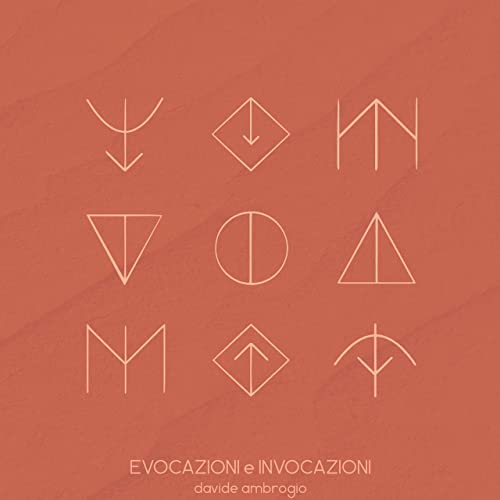Davide Ambrogio, singer and multi-instrumentalist from the Italian region of Calabria is releasing his first solo album, Evocazioni e Invocazioni. Ambrogio recently won the Premio Loano Giovani with Linguamadre, and the prizes Musica contro le Mafie and Ethnos Gener/Azioni 2020.
Evocazioni e Invocazioni is a tale that goes back to the root of sound: to connect the sound to the body that generates it, to the ritual that evokes and invokes it, so that it may become present. The outcome of this process takes the vocal tradition of Aspromonte (Calabria, southern Italy) into a contemporary sound landscape.
Davide Ambrogio says about the project: “The nine tracks describe a path centered on the idea of Sound, in its aesthetic and ecstatic dimension. In traditional oral music, songs and sounds appear in the context of a ritual. This album makes no difference: each track has its purpose; lullabies, protest songs, laments, and spells.
This creates an ancestral connection with what drives us to sing: celebrating the birth of sound (A Sant’Andrea); evoking a spell against evil (A Santa Rusulia) or summoning the wind to carry it away (A San Rocco); invoking sleep to bring on the free and sacred realm of dreams (Veniti Sonnu); mourning the loss of a father and crying with pain and anger against the criminal system of the ‘ndrangheta (A San Michele); questioning inaccessible truths (Misteru); protesting against social inequalities (La panza ciangi e lu cani ridi) or calling someone to speak, overcoming isolation and exclusion (Canto dal carcere).”
Each song was composed by Davide Ambrogio, except for Veniti Sonnu, a lullaby recorded by ethnomusicologist Alan Lomax in Cardeto (RC) in 1954. All the vocal tracks on the album were recorded by Davide Ambrogio, as well as all guitar, electronics, percussions, lyre, and zampogna tracks.
The lyrics are taken from the oral tradition of Aspromonte, except for A San Rocco, A San Michele and Canto dal carcere (written by Gianvincenzo Pugliese) and Misteru, by Ignazio Buttitta.


